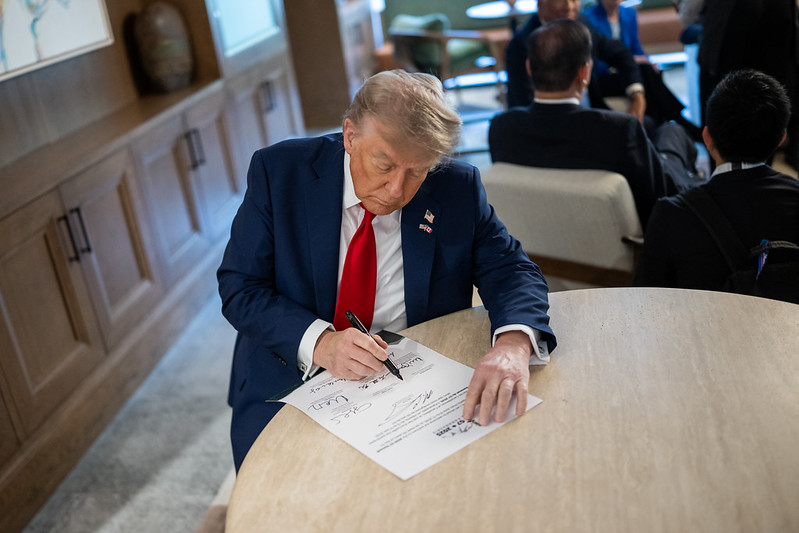Already a subscriber? Make sure to log into your account before viewing this content. You can access your account by hitting the “login” button on the top right corner. Still unable to see the content after signing in? Make sure your card on file is up-to-date.
President Trump has officially signed an executive order lifting most US sanctions on Syria.
Some shit you should know before you read: If you’re unaware, the US initially imposed sanctions on Syria in 1979 after designating the country a state sponsor of terrorism, a label tied to its support for militant groups like Hezbollah and its alliance with Iran. These sanctions expanded significantly over the years, particularly in 2004 in response to Syria’s military occupation of Lebanon and its suspected pursuit of weapons of mass destruction. In 2011, the US slapped another round of sanctions in reaction to former President Bashar al-Assad’s brutal crackdown on pro-democracy protests, which escalated into a civil war. These measures included freezing Syrian government assets, blocking oil exports, restricting financial transactions, and penalizing foreign entities doing business with Syrian institutions. Following the fall of Assad, Syria’s new interim president has vowed reform (though some question his sincerity) and has signaled he intends to move closer to the West and distance the country from Russia and Iran.

What’s going on now: In a notable development, President Trump moved forward with an executive order dismantling most US economic sanctions on Syria. The order repeals five key executive orders that had kept sanctions on the country for decades and formally ends the national emergency declared in 2004 over Syria’s regional activities and weapons programs. More than 500 Syrian individuals and entities were removed from the US sanctions list, effectively re-opening Syria to international trade, foreign investment, and financial assistance after years of economic paralysis.
The order also lays the groundwork for further action, directing US agencies to review remaining sanctions (especially those imposed under the Caesar Act), which penalized entities associated with human rights abuses during the civil war. While those congressional sanctions can’t be lifted unilaterally, Trump’s directive initiates a formal process to assess their potential rollback. It also includes a review of the terror designations assigned to interim President Ahmed al-Sharaa and his group, Hayat Tahrir al-Sham (HTS), which has been linked to al-Qaeda.
Despite the broad relief, the administration is keeping in place targeted sanctions on individuals tied to Assad’s regime, Iran-backed militias, ISIS, and Syria’s chemical weapons and narcotics trade.
Trump’s decision has received bipartisan backing in Congress, with Democratic Representative Ilhan Omar and Republican Representative Anna Paulina Luna co-sponsoring legislation to support long-term sanctions relief and economic recovery in Syria. In parallel, the European Union announced it would lift nearly all of its remaining sanctions.







